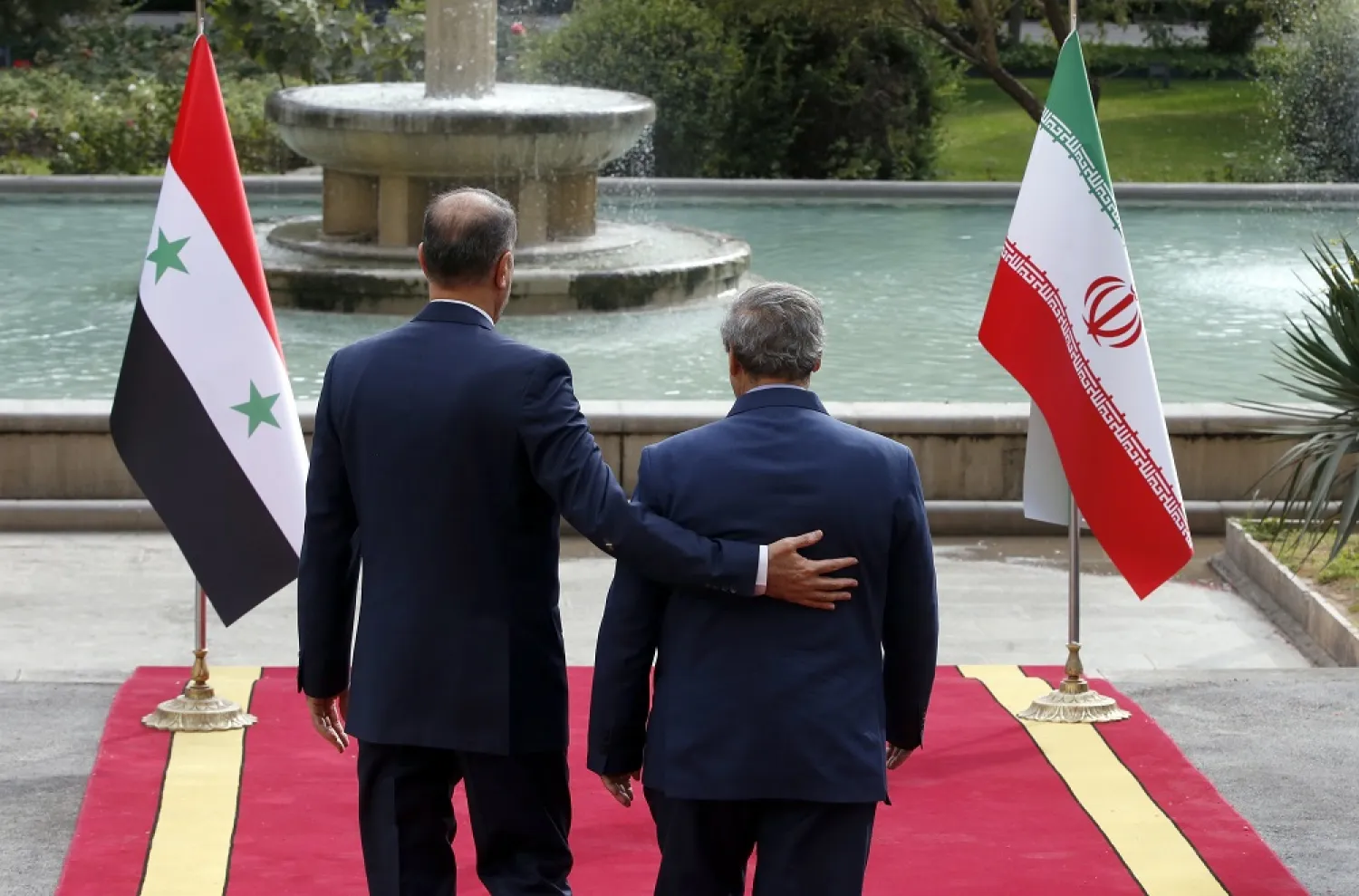Relations between Syria and Iran appear to have weakened amid reports that Tehran has been stalling in helping out its ally out of its unprecedented months-long fuel crisis.
The “strategic” relations between Damascus and Tehran appear to have also taken a hit through the launch of normalization talks between Syria and Türkiye from which Iran has been excluded.
Moreover, reports have said that the Syrian government has been shifting towards the Arab fold to help it end its crisis and isolation, a sign that it is moving farther away from Iran.
Asharq Al-Awsat has learned that Damascus is currently working on consolidating its control over sections of the Tehran-Baghdad-Damascus-Beirut route. The route is controlled by pro-Iran militias, but the regime’s attempts to seize control of some parts of the road are signs that it is undermining Tehran’s efforts to expand to the Mediterranean - a dream it has always longed for.
The route begins in Tehran, passes through the Iraqi capital Baghdad, stretches to more Iraqi territories, such as Ramadi and al-Qaim, before entering Syria in Alboukamal city and moving northwest towards al-Mayadeen city and then Deir Ezzor.
There, it branches out into two roads, one that heads further northwest towards Aleppo and then Latakia city that overlooks the Mediterranean. The second road moves to the southwest towards the eastern Badia (desert), reaches Palmyra where it again branches out into two.
The first road leads to the central Homs city, while the second leads to the al-Qalamoun region in the eastern Damascus countryside before stretching to the Syrian capital itself. In the capital, the route connects to international highways that lead to Lebanon and southern Syria.
‘Iran’s highway’
Iranian forces and its militias in Syria claimed control of the route when the al-Qaim-Alboukamal border crossing between Iraq and Syria reopened over three years ago. The crossing is strategically important for Iran because it provides it with a land link to Hezbollah, its militia in Lebanon.
It is also an important trade route that links it to Damascus, the Syrian coast and northern Lebanon. So important is the route to Iran that it has been called “the resistance axis highway” and “Iran’s highway to the Mediterranean.”.
Asharq Al-Awsat has learned, however, that regime security agencies in Deir Ezzor and its countryside, Alboukamal and al-Mayadeen – where Iranian forces and militias are heavily deployed – have received orders to stop granting Iranians permits to own land and properties in these regions. They have been also ordered to reclaim government buildings that are being used as headquarters by the Iranian forces and militias. Moreover, they have been ordered to closely inspect purchases by Iranian officials and militias of civilian property.
These orders have also been carried out in the Homs province and its countryside.
Syria and Iran had established their “strategic” relationship in 1979. It started to show strain in December in wake of the latest fuel crisis to hit regions held by the Syrian government.
Throughout the eleven-year conflict in Syria, Iran has provided Damascus with thousands of fighters, weapons and ammunition to use against the opposition. It also offered it with credit lines to buy food and oil derivatives and ships loaded with fuel to address any shortage.
However, Iran failed to send any oil to its ally with the eruption of the latest crippling shortage that has paralyzed government-held regions and caused prices to skyrocket. Tehran’s failure to come to Damascus’ aid has raised suspicions that relations have become strained. The postponement of a visit to Damascus by Iranian President Ebrahim Raisi in late December has done little to ease these suspicions.
Asharq Al-Awsat had previously reported that Syrian authorities were surprised that Raisi was preparing to visit Damascus. They learned of the plan when Tehran made demands and draft agreements that cover Iran’s desire to entrench itself militarily in the region and grant it access to the Mediterranean. It also demanded sovereign financial concessions related to Syrian oil, gas and phosphates fields and projects and telecommunications. It also demanded that Iranians receive equal privileges as Syrian citizens in Syria.
Exploitation
A source following the development of Syrian-Iranian relations described as “exploitation” the demands that Iran has made of Syria.
“They can’t be described as anything less than that,” he told Asharq Al-Awsat.
“Iran’s behavior is comparable to that of western countries that Damascus views as its enemy. The similarities were definitely not lost on Damascus,” he remarked.
Furthermore, he said Iran did not help Syria throughout the conflict for the sake of helping it, “rather it was seeking a foothold in the Arab world through Iraq and Syria. It also wants to reach the Mediterranean, which is why it seized control of the Tehran-Beirut route that stretches through Syria.”
The source noted that more and more signs are emerging that Arab countries were seeking to normalize ties with Damascus to attract it back to the Arab fold. Damascus seems receptive to the idea, but how will Iran react?
Iran has made sizeable investments in Syria, stressed the source. Will it stand idly by and watch developments unfold? Will it allow Damascus to move ahead in its new direction?
Marginalization
Even though Iran is one of the three guarantors of the Astana process on Syria, it has notably been absent from the normalization talks between Ankara and Damascus that have been sponsored by Moscow. Russia and Türkiye are the two other guarantors.
Iranian Foreign Minister Hossein Amir-Abdollahian had paid a visit to Damascus on January 14 and later headed to Ankara on January 17.
Abdollahian’s senior advisor on special political affairs Ali Asghar Khaji had stated during the visits that Iran was “annoyed” that it was excluded from normalization talks between Ankara and Damascus.
“Syrian issues cannot be easily resolved without Iran,” he stressed.
He also said that Abdollahian had spoken to Syrian authorities about the issue, stressing that the Astana process must continue.














